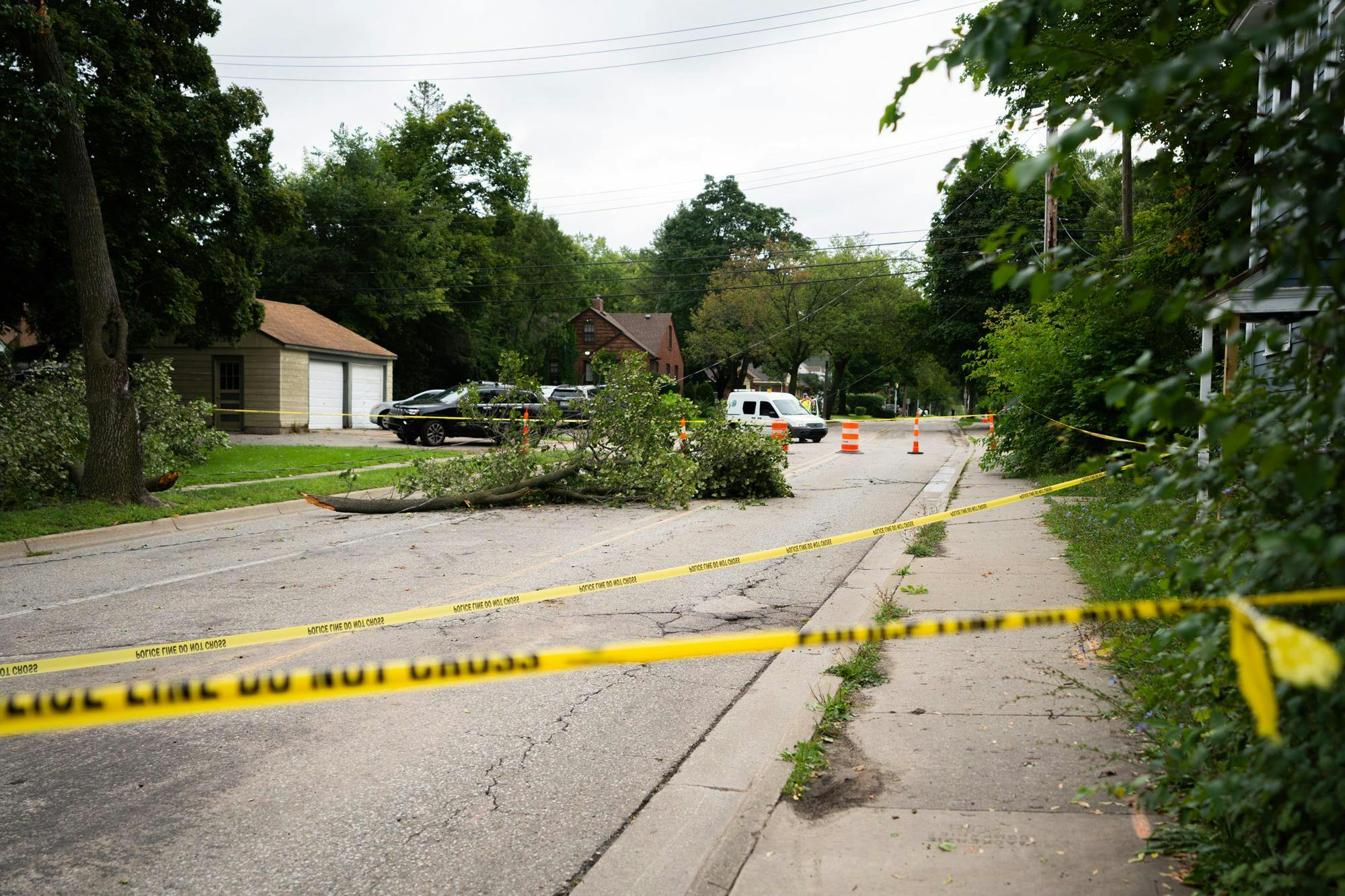Last week heavy thunderstorms hit East Lansing creating debris and flooding, prompting Michigan State University to issue a severe weather warning. Throughout the months of Aug. and Sept., many natural disasters have swept the nation, including the tragic Maui wildfires which left 115 people dead, hurricane Idalia a Category 3 hurricane and Hurricane Hillary, a pacific storm battering the west coast.
Extreme weather events like these, as well as the tornadoes that touched ground in areas surrounding Lansing, have generated discussion among MSU experts over climate change and its implications for Michigan.
Earth and environmental sciences professor Bruno Basso said climate change is increasing the frequency of severe weather.
In the event of incidents like the Maui fires, Basso said, extremely dry vegetation, increasing temperatures and low precipitation are direct consequences of climate change, creating conditions for extreme weather events.
On the other hand, geography professor and Michigan state climatologist Jeff Andersen said weather patterns and climate change can present a "challenging connection."
"I find it difficult to relate one storm (or) one heavy flooding rain event to climate change," Andersen said.
However, Andersen noted that the amount of greenhouse gas being released into the atmosphere cannot be dismissed as a natural occurrence.
"The issue is that we are releasing gas into the atmosphere at a much ... higher rate than what is observed in the natural world," Andersen said. "We are changing the composition of the atmosphere at a much more rapid rate than what has occured in the past."
Comparative cultures and politics and sustainability senior Truman Forbes said the extreme weather events cannot be considered sporadic. Forbes, who is a Sunrise Core Team Member, said efforts should be placed less on whether climate change is responsibile or not and more on how we can mitigate its effects.
"Individual change is great, but it's honestly more institutional and larger scale changes that we need," Forbes said. "It's people like Jeff Bezos and larger institutions like (MSU) that are causing this, not ... deciding to recycle your Starbucks cup or not."
Forbes added that the most environmentally beneficial impact could be seen from MSU divesting from fossil fuels and investing in renewable energy, for example.
In terms of what to expect for this winter in Michigan, a state notorious for its bipolar weather patterns and icy, torturous winters, both Basso and Andersen predict a milder and drier season.
"My general feeling is that (winter) could be dominated by more extreme events that (have) been happening," Basso said. "Things are really shifting, so (it could be) warmer for a longer time, and then it could be ... (a) week of really intese cold. And so overall, people will remember the winters being milder and only a short period being much colder."
Andersen said there is evidence that the snowfall will total to "less than normal."
Support student media!
Please consider donating to The State News and help fund the future of journalism.
Discussion
Share and discuss “MSU experts discuss recent extreme weather events, expectations for Michigan” on social media.




